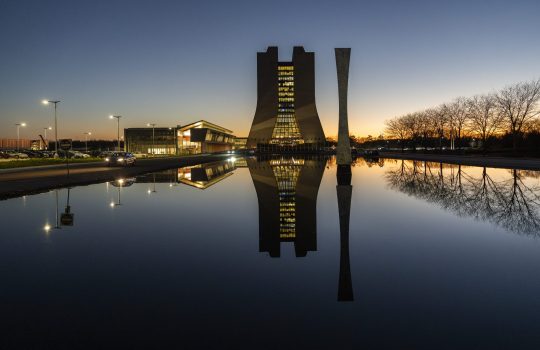Fermilab drives economic growth in Illinois and South Dakota
A new economic impact study shows the growing positive effects on economies in the U.S. through operations conducted by Fermi National Accelerator Laboratory. In Illinois and South Dakota, positive ripple effects from Fermilab spending contributed $1.6 billion in economic output during fiscal year 2022 and supported 7,242 jobs.

